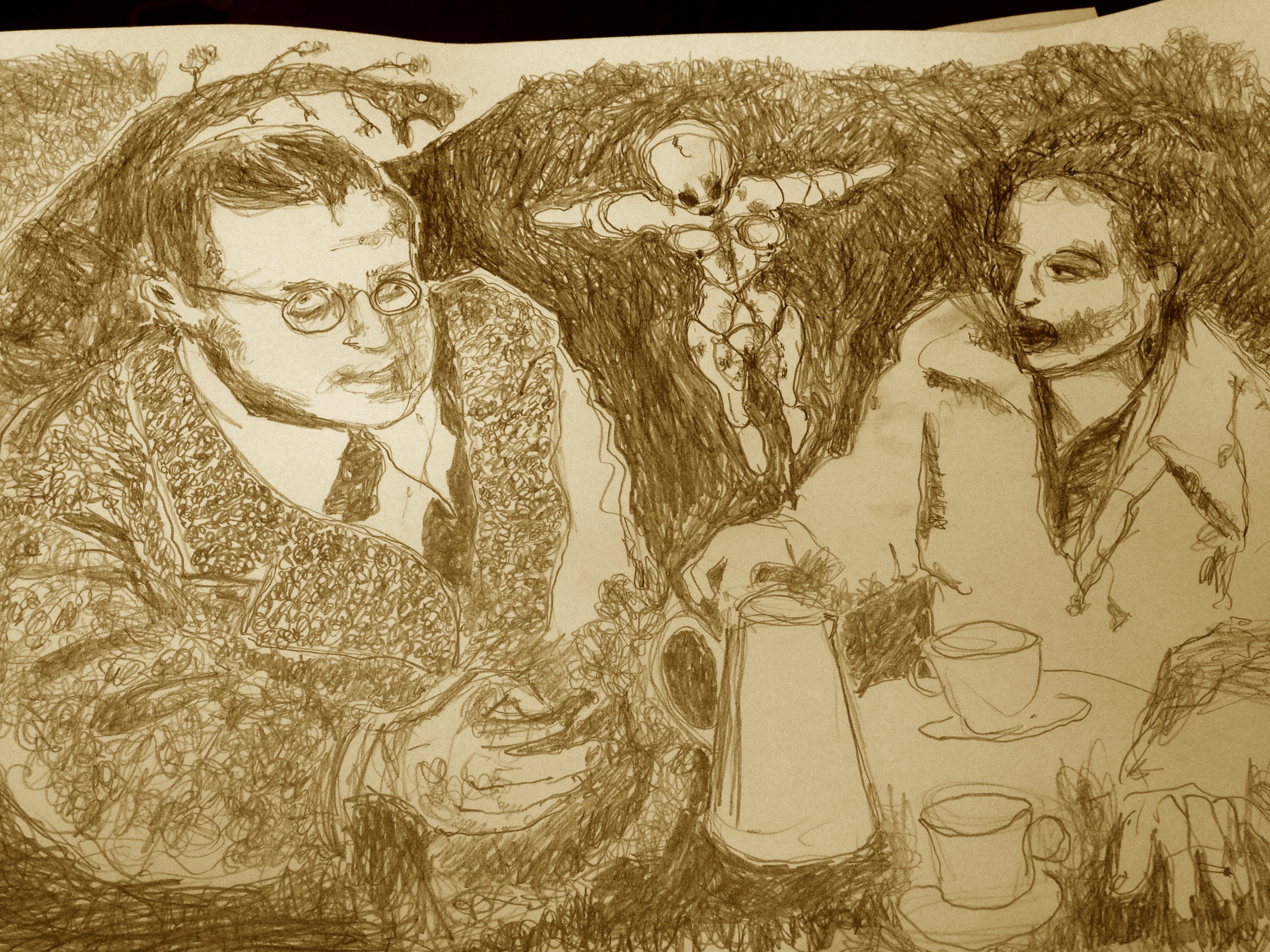On Zinn, Sartre, Husserl, Rorty
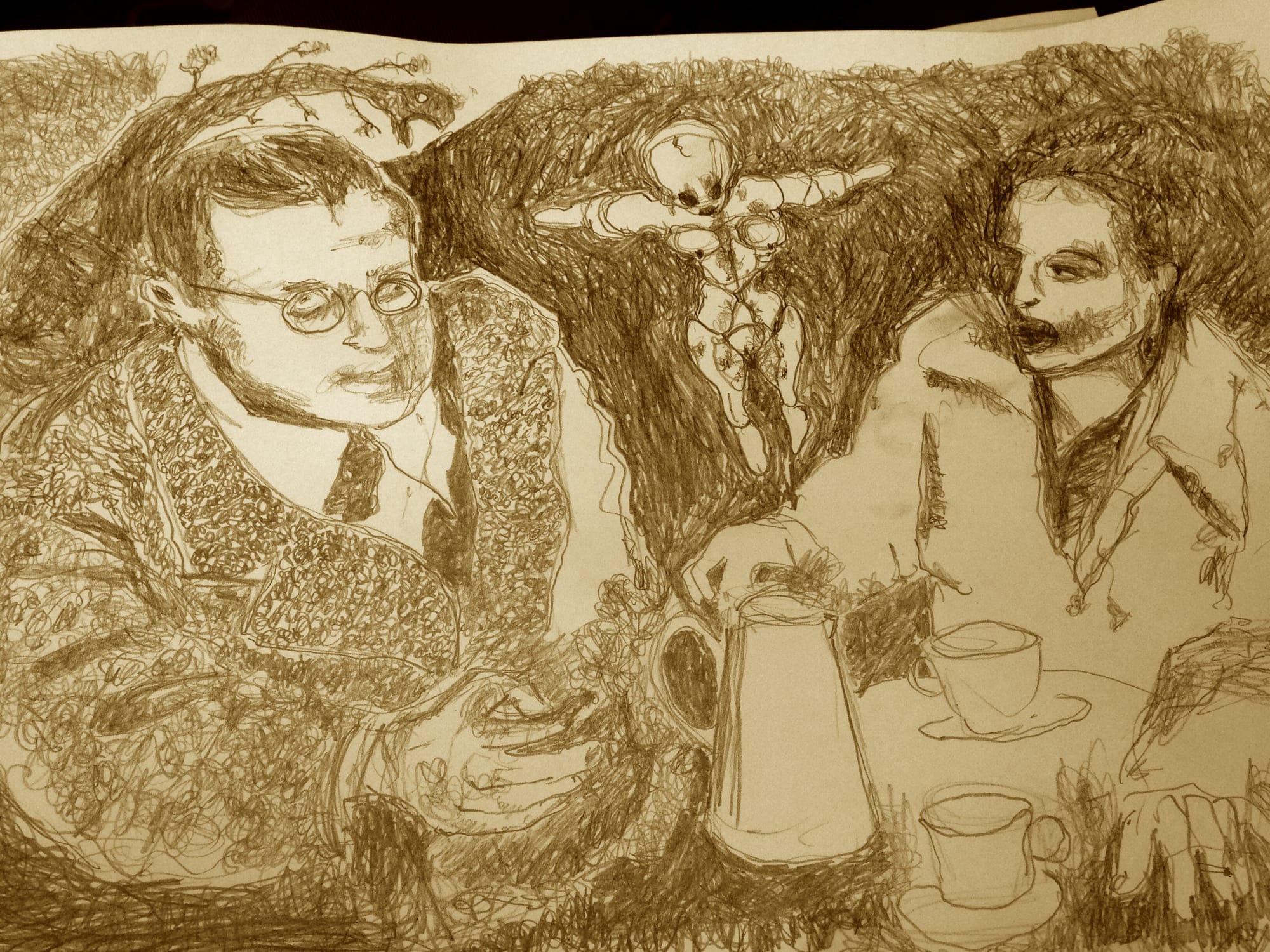
Interview by Richard Marshall

'... to approach a situation, an issue, or an activity with a bias is simply to approach it with a leaning, inclination, or preference in advance. It’s hard to see how anyone could function without doing that. So, rather than striving to avoid having biases in this sense, the more defensible strategy might be to try to develop good biases, rather than bad ones, as in approaching the task of settling a dispute with a bias in favor of nonviolence, and in approaching the task of intellectual work with a bias in favor of logic and evidentiary rigor.'
'The understanding and appreciation of these ideas, which the French achieved by means of their painful experience living under Nazi occupation, also undoubtedly helps to explain the ascendency of Sartrean existentialism in post-World War II France. But the contemporary relevance of Sartre is revealed in the recognition that the same conditions and principles also apply to us today, especially those of us who are privileged to be able to live relatively comfortable lives. Our choices and actions also can, and frequently do, dramatically affect the lives of others. Our choices are important.'
'Phenomenology is the study of the essential structures of experience. It attempts to describe what is disclosed in experience just as it is disclosed. We experience ourselves as free. When making a decision, the future is given as open, with the question of what I will do presenting itself as depending on my choice.'
'I regard postmodern truth denial of the sort just described as confused, incoherent, and illogical, as well as, from a political standpoint, worse than useless. One might hope that Donald Trump’s very different kind of assault on truth might help to reawaken our awareness of the political importance of truth, and of the value commitments (such as a prioritizing of evidence over opinion, and of realism over wishful thinking) necessary to attain it. '
David J Detmer is the author of six books, as well as numerous articles and book chapters on such topics as Sartre, vegetarianism, the Beatles, Rorty, the death penalty, Baudrillard, Woody Allen, the U.S. mass media, Habermas, Husserl, U.S. foreign policy, modern art, existentialism, Gadamer, Ricoeur, Heidegger, Nietzsche and virtue-based epistemology. Here he discusses the controversy surrounding Howard Zinn's history of the USA, Satre and why he shouldn't be ignored, Sartre's understanding of freedom of consciousness, the status of ethics in Sartre, freedom and phenomenology is Sartre, Husserl and phenomenology, the politics of postmodernism, and finally Richard Rorty and why his approach to truth fails.
3:16: What made you become a philosopher?
David J Detmer: I have always loved reading, and in early childhood I acquired the habit, which I have retained to this day, of reading, more or less simultaneously, several books on any subject that interested me. On any given trip to the public library I might, for example, check out eight or nine books on dinosaurs, or five or six different biographies on some person who had caught my attention. Instead of reading one book straight through before turning to another, I would tend to read a chapter or two of one, and then a chapter or two of another, and so on, often covering the same material. In this way it was easy to spot inconsistencies and disagreements—what was asserted in one book was denied in another. This provoked thoughts about how to decide between conflicting accounts, and these thoughts often interested me more than the actual contents of the books did. That stayed with me. Then, in 1968 (I was ten years old), I got interested in politics, provoked by such things as the Vietnam War, the civil rights movement, and the assassinations of Martin Luther King and Robert Kennedy. As a teenager I developed an equally strong interest in music. At about 15 or 16 I stumbled upon some philosophy books in the public library and discovered that philosophy dealt with all of these subjects. I read several books by Bertrand Russell, by Sartre, and a few other philosophers. When I went to college, I chose philosophy as my major before I had ever taken a single class in the subject. And I’ve never looked back.

3:16: You’ve defended Howard Zinn’s ‘A People’s History of the United States’ which seems to be very of the moment given the current discussions around racism and the role of historical awareness around all this. Can you sketch for us what Zinn claims about the role of ordinary people in progressive change and in particular his analysis of bias and objectivity?
DD: Zinn’s book is, in part, an attempt to show that whenever progressive change has occurred in the United States, it has resulted from the struggles of ordinary people—those who have participated in popular movements agitating for peace, for racial and sexual equality, for improved working conditions, and for environmental protection, among other similar causes. It hasn’t come from elected officials. They almost never boldly fight for political change when doing so would involve taking on any kind of personal or political risk.
“Bias” is often defined in such a way as to make it a bad thing by definition, as a closed-minded, unfair, or irrational prejudice. But, in a more neutral characterization of bias, to approach a situation, an issue, or an activity with a bias is simply to approach it with a leaning, inclination, or preference in advance. It’s hard to see how anyone could function without doing that. So, rather than striving to avoid having biases in this sense, the more defensible strategy might be to try to develop good biases, rather than bad ones, as in approaching the task of settling a dispute with a bias in favor of nonviolence, and in approaching the task of intellectual work with a bias in favor of logic and evidentiary rigor. Moreover, when we look at what actually goes on when people demand an absence of bias, or criticize the views of others as “biased,” we can see that a very clear and pronounced conservative bias—a bias in favor of traditional, conventional, “mainstream” views and perspectives—is often at work.
The reason is that while non-traditional, non-mainstream views are instantly recognized as views (as positions that are not merely neutral or factual, but rather expressions of one particular perspective among others), the opinionated or perspectival character of conventional views often goes unnoticed. If, when discussing meat, one highlights the suffering of cows, pigs, and chickens on modern factory farms, and the high environmental costs of modern meat production, one is perceived to have an ideological bias. But somehow no ideological bias is detected when a writer ignores these issues, and focuses instead on tasty meat dishes, and the fun of having friends and neighbors over for a barbecue. So while the idea that one can dispense with ideological or value-laden considerations when writing any kind of narrative is an illusion, it is one that can be sustained only when the values in question are orthodox ones. Thus, the call for value-free, or neutral, or non-ideological history, in addition to being objectionable on theoretical grounds, is usually itself biased in favor of conservatism.
In Zinn’s criticism of “objectivity,” he repeatedly goes out of his way to explain that he is not rejecting a scholarly commitment to accuracy, or to the logical and evidentiary rigor necessary to attain it. Rather his targets are two other ideas that tend to get conflated with such a commitment. One of these ideas is neutrality—specifically, the idea that taking sides on a controversial moral or political issue is incompatible with maintaining high standards of scholarly inquiry. He cites the example of a major conference of Asian Studies scholars, held during the height of the Vietnam War, in which not a single paper or panel was addressed to that topic. It would seem obvious that it would be a good thing for those with expert knowledge on Asian history and politics to bring that to bear on an intensely important matter of public controversy. But it wasn’t done, largely because of the belief that making an argument for one position over another with respect to it would make one a “propagandist,” rather than a scholar. But that can’t be right. If the resources of scholarship are generally useful for advancing our knowledge, why would this suddenly not be the case whenever the knowledge in question might favor one side over another in a matter of political controversy? The answer that is typically given is that the objectivity of inquiry is compromised when it is contaminated by value commitments. But that can’t be right, either. Zinn offers plenty of examples. Good medical researchers have value commitments. They’re for health, and against disease. Far from subverting their research, this commitment guides and focuses it. To achieve any end effectively, one needs a commitment to accuracy. You can’t build a bomb to kill people without it, just as you also can’t find a cure to a deadly disease, so as to save people, without it.
The other idea that gets confused with the defensible sense of “objectivity” (as accuracy) is centrism. Many people talk as if endorsing consensus opinions, and holding views in the center of some spectrum of “mainstream” opinion is the same thing as being “objective.” One sometimes hears journalists explaining their supposed “objectivity” by saying such things as, “I’m careful to avoid bias from the left or right,” or “I play it straight down the middle.” But this is to abandon logic and evidence in favor of standards that are subjective and sociological. A commitment, in advance of the evidence, to arrive at a position in the center of some spectrum of opinion is not “objectivity.” It’s an irrational and indefensible centrist bias.
3:16: Famously Zinn’s book was challenged on various grounds by several critics and you have written a book defending Zinn’s work from these assaults. Why did the book receive such a bad mauling from fellow historians and of these criticisms which were the ones that impressed you the most? How did you push back to defend him?
DD: I’ll take these in reverse order. I pushed back by trying to show that Zinn’s harshest critics, such as Sean Wilentz of Princeton, David Greenberg of Rutgers, and the late Oscar Handlin of Harvard, all fill their critiques with demonstrable errors, and, in general, produce incompetent work when they write about Zinn. For example, Wilentz says that Zinn “had a very simplified view that everyone who was president was always a stinker.” He then informs us, “That can't be true…. Abraham Lincoln freed the slaves. You wouldn't know that from Howard Zinn.” But in A People’s History Zinn says: “It was Abraham Lincoln who freed the slaves” (p. 171). In fact, he says it twice on that page. Moreover, the page in question is the very first page of his chapter on the Civil War.Handlin claims that Zinn expresses his contempt for civilization by “usually” enclosing that word within quotation marks. But Zinn uses the word “civilization” twenty times in A People’s History (not counting the appearance of the word in quotations from the sayings and writings of others). It appears on pages 1, 9, 11, 12, 16, 17, 22, 26 (twice), 29, 104, 122, 127, 128, 137, 313, and 629 (four times). He encloses it in quotation marks twice (pages 104 and 128). Two out of twenty comes out to 10% of the time—which is a far cry from “usually.” But Handlin says that it is Howard Zinn who “pays only casual regard to factual accuracy.”
Greenberg says that Zinn “relentlessly criticized American policy and seems to have stayed silent about the Soviet Union.” But in an essay entitled “Communism and Anti-communism,” published 23 years prior to the appearance of Greenberg’s claim, Zinn had written this:
“The Soviet Union…has been brutal in its treatment of its own citizens, murdering peasants in large numbers during the process of collectivization; imprisoning, torturing, and executing those it considered dissidents, whether ordinary people, intellectuals, artists, or distinguished leaders of the 1917 Revolution. The term police state fits it very well…. It has imitated the imperialist powers in invading other countries—Hungary, Czechoslovakia, and Afghanistan, killing thousands of people.”
In Zinnophobia I provide a number of other quotations in which Zinn characterizes the Soviet Union as “ruthless,” “oppressive,” ‘brutal,” “murderous,” a “dictatorship,” a “police state,” and an example of “fascism,” and criticizes its “aggression,” its “atrocities,” and its “monstrous tyranny.” The book also debunks a number of other demonstrably false claims by these and other critics of Zinn (25 critics in all).
As to the question of which criticisms impressed me the most, I should emphasize that my book is mainly concerned with the vituperative denunciations of Zinn that have been published (of which there are several, often by celebrated scholars), as opposed to the reasonable and measured criticisms that all scholars receive. By my lights these critics—those who call Zinn’s famous book “lousy” or “a deranged fairy tale”—score very few points. After investigating every single criticism made by the 25 critics I discuss, I found that the worst mistake (and one of only very few) that any of the critics was able successfully to pin on Zinn was his statement that more than 100,000 were killed in the bombing of Dresden in World War II. Recent scholarship has shown that the correct figure was probably somewhere in the 20,000-25,000 range.
As for why Zinn’s book has taken such a mauling, this is a topic that I do not address in the book. The reason is that I wanted to stick to what I could demonstrate with evidence, and avoid speculation, especially speculation of an ad hominem nature. However, since you ask, I will hazard a guess, while noting that it is nothing more than a guess. I suspect that several factors are at work. (1) Zinn’s book obviously is written from a political point of view, and this enrages those who think that history can and should be apolitical. Those whose political opinions differ sharply from Zinn’s are especially enraged. (2) Even more than political conservatism, perhaps professional conservatism is a factor. Zinn’s book includes things that other American surveys exclude, and it excludes things that all the other surveys include. In that, and in several other ways, it is simply different from the standard survey of American history. What is different often appears wrong and incompetent—worthy only of contemptuous, sweeping rejection, rather than careful, factually and logically competent, criticism. (3) Jealousy might be a factor in some cases. Zinn’s book is a perennial best seller, has sold over 2.6 million copies, and, long before his death, had turned its author into a minor celebrity, and, in some circles, a hero. Finally, (4) while Zinn’s book is the product of a lifetime of reading and learning, it contains very little original scholarship. Rather, it synthesizes, and renders in a clear and coherent narrative, the work of hundreds of other historians. Work of that sort is often treated dismissively.
3:16: Where do you stand on the recent controversies regarding the role of race in the history of the USA? There are some on the left who would argue that it is the defining issue whereas others on the left would argue that to see everything through a race prism is a distortion? Does Zinn help with this?
DD: Race isn’t everything. I don’t think it’s the defining issue. But it’s a great big thing, and a thing that has been underplayed in most surveys of American history. Zinn gives it a great deal of attention—one of the many ways in which his work acts as a counterweight to the more traditional accounts.
Zinn’s first academic position was at Spelman College, in Atlanta, a school for African American women. He was there from 1956 to 1963 and was an active participant in the burgeoning civil rights movement, often engaging with his students in acts of civil disobedience—for example, by sitting together in restaurants or other public places in defiance of segregation laws. While these experiences inform his historical writings, he does not focus on race in such a way as to exclude other considerations, such as class.
For myself, I would say that, while it would be a great thing if race were no longer a factor in determining who lives in poverty, or lacks adequate access to health care, or suffers from mistreatment at the hands of the police and the criminal justice system, it would be a much better thing if no one suffered in these ways, or in other ways like them.
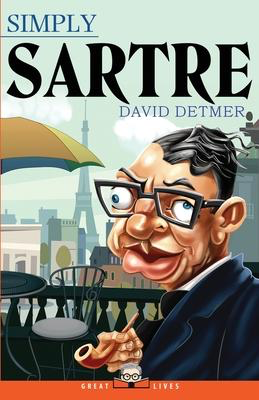
3:16: You’re a Sartre expert. He was a philosopher, political activist and novelist who achieved extraordinary success and fame for these activities during his lifetime. He’s a rather neglected figure these days but you think he’s underrated by those who dismiss him. Could you sketch for us the areas where you think this is particularly the case?
DD: Here is an example. In September 1944, just one month after the liberation of France, Sartre published a short essay, “The Republic of Silence,” in which he presents some of his ideas on freedom and responsibility in the context of attempting to explain to the rest of the world what it was like to live in France under Nazi occupation. Its opening line is startling: “We were never more free than during the German occupation.” His explanation (in part): Because an all-powerful police tried to gag us, every word became precious as a declaration of principle. Because we were hunted down, every one of our acts had the weight of a solemn commitment. The often atrocious circumstances of our struggle made it possible, in a word, for us to live out that unbearable, heart-rending situation known as the human condition without pretense or false shame. Exile, captivity and, especially, death, which in happier times we artfully conceal, became for us the perpetual objects of our concern…. The very cruelty of the enemy drove us to the extremities of [the human] condition by forcing us to ask ourselves questions we sidestep in peacetime. The extreme circumstances served to demonstrate that the freedom of one individual is linked to that of all of the others, that one’s actions easily could help or harm others, just as theirs could help or harm oneself, and that freedom is thus connected to responsibility, reciprocity, equality, and solidarity. The understanding and appreciation of these ideas, which the French achieved by means of their painful experience living under Nazi occupation, also undoubtedly helps to explain the ascendency of Sartrean existentialism in post-World War II France.
But the contemporary relevance of Sartre is revealed in the recognition that the same conditions and principles also apply to us today, especially those of us who are privileged to be able to live relatively comfortable lives. Our choices and actions also can, and frequently do, dramatically affect the lives of others. Our choices are important. It is not as if our world were free of war, violence, poverty, starvation, and oppression. But we tend to ignore the responsibility that this situation entails, something that our cushy situation allows us to do. We face little danger of being imprisoned, tortured, or killed as a result of our actions on behalf of others. We won’t be sent to a Gulag, concentration camp, or CIA black site. The barriers to our taking the actions needed are not Nazi occupiers, but rather ignorance, apathy, laziness, selfishness, and/or a sense of impotence—the conviction that nothing can be done to overturn the world’s horrific evils. We live in a world in which 3.1 million children die of hunger each year. Sartre’s message to us about this would be that we are free to fight this injustice or else to accept it, and that we are appropriately held responsible for our choice. In this crucial respect our times are no different than Sartre’s: we, too, confront evils, and are free either to fight them or “collaborate” with them.
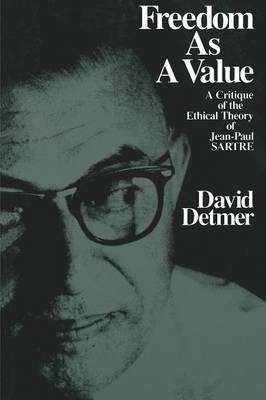
3:16: What does Sartre argue that freedom of consciousness is? Is this kind of freedom the highest value for Sartre?
DD: One way to approach that is to consider the various activities of consciousness. Consider perception, for example. It requires selective focusing, that is, the elevation of some portion of one’s perceptual field to the foreground, constituting it as figure, and the simultaneous relegation of the remainder to a relatively undifferentiated, and only marginally noticed, background. Such focusing is necessary if one is to perceive anything specific at all, since there is always a limitless abundance of things in one’s perceptual field that might be noticed. The only way to pick out a “signal” among all that noise is to negate, to put out of action, a substantial portion of that perceptual field. As perceptual fields do not organize themselves for us, and things do not dictate to us how they are to be focused on and conceptualized, these feats appear to be the accomplishments of acts of consciousness.
Moreover, insofar as one is conscious, there is a sense in which this freedom of focusing and of thought is omnipresent and inescapable. For one cannot be aware of anything without going beyond what is given by selectively attending to part of it (and doing so only in one of several possible ways) while setting aside, or at least marginalizing, the rest. This is one of the meanings of Sartre’s oft-repeated claim that we are “condemned” to be free. And it is precisely because we are free in this sense that we typically encounter, in experience, a meaningful world rather than a meaningless chaos.
Moreover, this freedom of focusing, in part because of its role in disclosing meanings, is foundational to freedom of choice. For the objects in our perceptual field do not affect us mechanistically. Rather, they must be interpreted and contextualized, that is, understood as meaningful elements in the “situation” that serves as the background against which we act. I avoid the snarling dog only insofar as I interpret its growl and stare as “threatening”; I go on strike only insofar as I interpret my pay as “insufficient” or “unfair,” and so on. Thus, according to Sartre, the factual state of affairs that we confront can never, by itself, even motivate an action, let alone cause one. The reason is that one’s interpretation of them as meaningful, and as comprising a situation, typically depends on one’s projects, interests, and background knowledge, and these, in turn, require focusing acts of consciousness that negate and put entirely out of play many positive elements of one’s perceptual field.
In Part Four of Being and Nothingness , and in his subsequent works, Sartre thickens and deepens his analysis of this foundational freedom of consciousness to focus, negate, interpret, and imagine, by expanding it to include the full-blooded freedom of embodied individuals to act on and to alter material conditions, economic and political structures, and other states of affairs that such agents confront in a social world that they share with others
.In several works Sartre says that freedom is the highest value. But to understand this claim it is important to note the distinction he draws between, on the one hand, “the empirical and popular concept of freedom,” which amounts to “the ability to obtain the ends chosen,” and, on the other hand, “the technical and philosophical concept of freedom,” which “means only the autonomy of choice.” This distinction allows him to acknowledge that slaves and prisoners are significantly less free than the rest of us with regard to their “freedom of obtaining,” even as he continues to maintain that their “freedom of choice” is absolute and equivalent to our own.
This is important because many of Sartre’s critics have questioned how freedom can be a value, something to strive for, if it is already an essential and inalienable aspect of our existence. Sartre’s reply is that “if man is not originally free, but determined once and for all, we cannot even conceive what his liberation might be.” Or, to give one more formulation, “only a freedom can be oppressed,” because “if we pretend that man is not free, the very idea of oppression loses all meaning.” After all, “a stone does not oppress, and one does not oppress a stone.”
These passages suggest that freedom of choice and freedom of obtaining, while distinct, are connected to one another. The former is foundational to the latter. Freedom of choice (that is, freedom from determinism) is a necessary, but not a sufficient, condition for freedom of obtaining (that is, political and economic freedom, and especially freedom from oppression and exploitation). Freedom of choice is a necessary condition for freedom of obtaining, because a being subject to thoroughgoing determinism would not be “free” even if no one oppressed it and all of its needs and desires were met. But it is not a sufficient condition, because a being with “absolute” freedom of choice might yet be unfree in the sense that it is enslaved or otherwise oppressed, and/or it is unable to meet even its most basic and essential needs.
In Sartre’s later career, as he devotes more and more attention to social, political, and economic issues, there is a corresponding increase in his engagement with freedom of obtaining. For example, in a 1960 interview he asserts that “freedom—not metaphysical but practical freedom—is conditioned by proteins. Life will be human on the day that everyone can eat his fill and every man can work at a job under suitable working conditions.” Similarly, he endorses the notion of a “concrete freedom” which would mean “the right to have more than one pair of shoes and to eat when one is hungry,” and speaks of the need “ for everyone ” to have “a margin of real freedom beyond the production of life.
In his seldom-read, posthumously published, abortive Notebooks for an Ethics , he offers a classification of “values in a hierarchy such that freedom increasingly appears in it,” with the highest values being those that are most closely connected to freedom. In this hierarchy, he lists as the highest values, in ascending order, passion, pleasure, criticism and the demand for evidence, responsibility, creation, and, at the very top, generosity.
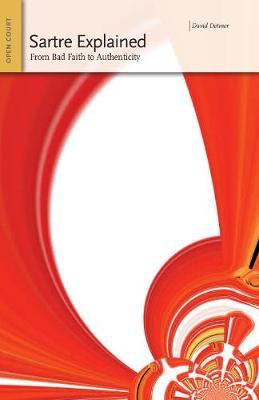
3:16: Together with this Sartre argues for a kind of ethical subjectivism. Is his theory an ontological doctrine or a meta-ethical thesis? And with this subjectivism is he agreeing or disagreeing with Dostoevsky that if God is dead anything goes?
DD: I think that Sartre is, at best, unclear, and at worst, inconsistent, on this issue of subjectivity and objectivity in connection with values. The problem is that he sometimes seems to conflate value subjectivism as an ontological doctrine (a claim about the manner in which values exist) with value subjectivism as a meta-ethical thesis (a claim about the truth status of value judgments). To illustrate the distinction, consider Sartre’s famous description, in Being and Nothingness , of Pierre’s absence from the café.
As the story goes, I have an appointment to meet Pierre in the café. I arrive late. Pierre is always punctual, leading me to wonder whether he will have waited for me, or instead given up on me and left the café. So, when I arrive, I look for him. What do I find? Since I am intensely interested in finding Pierre, and have no interest at present in anything else the café has to offer, it turns out that the only thing I find in the café is the absence of Pierre:
“I am witness to the successive disappearance of all the objects which I look at—in particular of the faces, which detain me for an instant (Could this be Pierre?) and which as quickly decompose precisely because they ‘are not’ the face of Pierre.”
Now, one of Sartre’s points about this is that Pierre’s absence from the café is ontologically dependent (that is, dependent for its existence) on the selective focusing acts of a consciousness. But at the same time, this absence is something genuinely encountered perceptually in experience; it is not in any sense posited or invented. Moreover, truth claims about it are objective. A statement that Pierre was at this time present in the café would be simply false, rather than a subjective matter of personal belief, feeling, or taste, and its falsity could be established by a thorough search of the café. On the most coherent reading of Sartre, I think his position on values is that they are like absences in these respects. Ontologically, they do not exist independently in the world apart from consciousness; and yet, at the same time, they are not simply the products of personal (or, for that matter, cultural) feelings or beliefs. Our judgment (turning to meta-ethics) that happiness is better than misery, that peace is better than war, that health is better than sickness, that knowledge is better than ignorance, and so forth, is something found, discovered, perceived, much more so than posited or invented.
With regard to Dostoevsky’s “if God did not exist, everything would be permitted” line, the only place in which Sartre expresses agreement with it is in his unfortunate “Existentialism is a Humanism” lecture. But he explicitly denies it, referencing Dostoevsky, in at least three other places: his War Diaries , written in 1939 and 1940, pre-dating the famous lecture, and in interviews conducted in 1951 and 1974, post-dating it. In any case, Dostoevsky’s position (or rather, that of his character) is indefensible. Any attempt to found morality on the commandments of a God would suffer from the same defect as any other appeal to authority: it leaves open the question of whether the authority is right. If there is a creator of the universe, there is no reason to assume, a priori, that this creator would be good or wise. A God who would deny that happiness is better than misery, that peace is better than war, that health is better than sickness, or that knowledge is better than ignorance, would simply be a God whose advice on value matters would best be disregarded. And if there is no God, it is unclear why that fact would undermine, or cast doubt on, the soundness of the value judgments just mentioned.
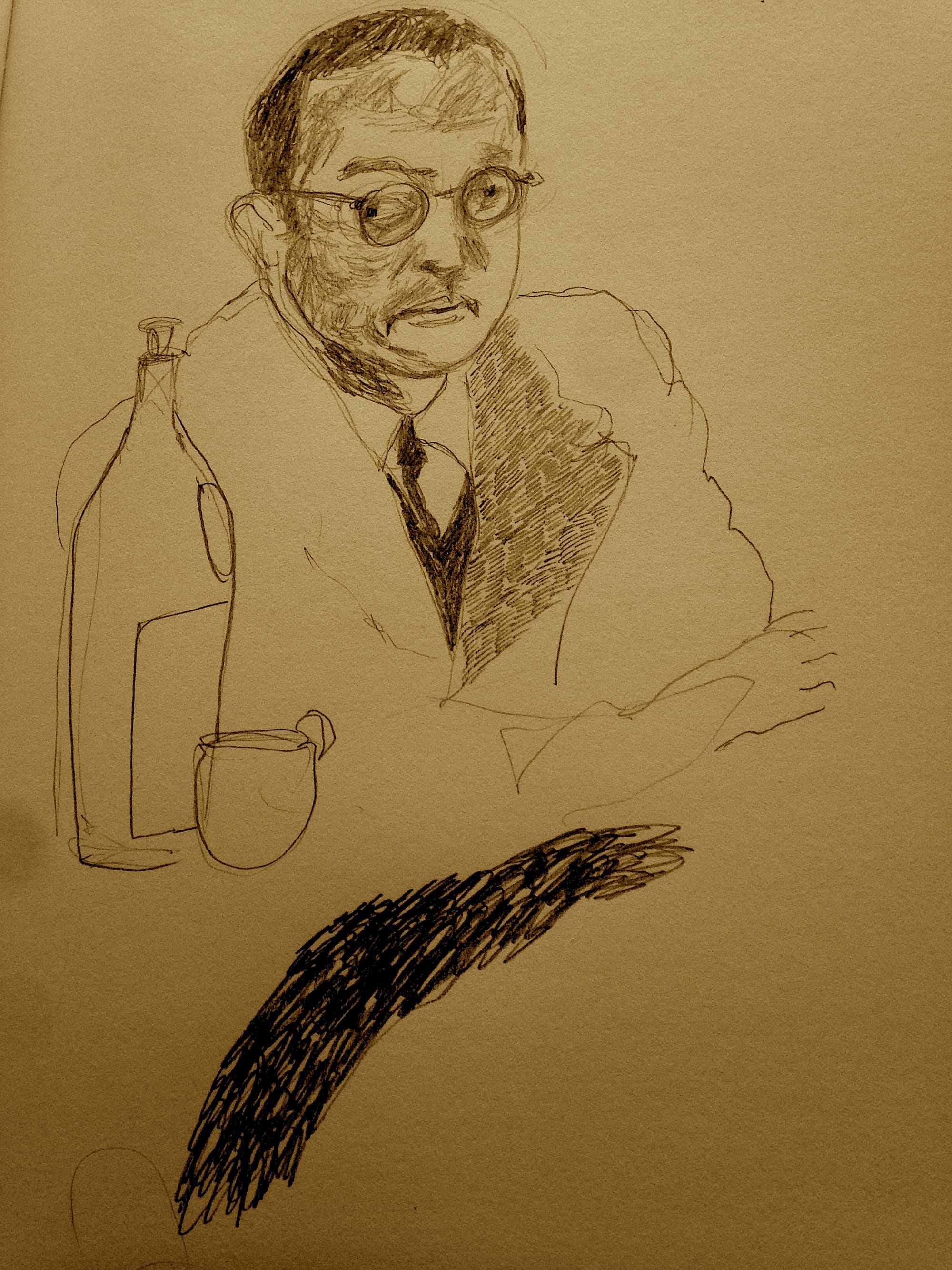
3:16: What is it about his approach to this kind of freedom that makes Sartre a phenomenologist?
DD: Phenomenology is the study of the essential structures of experience. It attempts to describe what is disclosed in experience just as it is disclosed. We experience ourselves as free. When making a decision, the future is given as open, with the question of what I will do presenting itself as depending on my choice. Granted, it is possible that our experience of freedom is illusory, as determinists claim. But Sartre presents the most detailed account of the phenomenology of freedom that has ever been offered, noting, in particular, the myriad ways in which actions are given in experience as differing radically from other kinds of events. Actions are purposive, intentional, aimed at bringing about a desired state of affairs in the future, and founded on a conscious understanding of a situation, whereas other kinds of events are mechanistic, determined by what has happened in the past, unconscious, and devoid of purpose.
This goes to the issue of parsimony. The main argument for determinism is indirect. It is not the case that we experience the causes that supposedly necessitate the exact actions that we end up undertaking (quite the opposite); instead, the argument is that since we accept a causal account for everything else that happens, and since such an account would also be capable of explaining our actions, it seems either arbitrary or inconsistent to make those actions an exception to the general rule. Such a move, so the argument goes, offends against the principle of parsimony by multiplying assumptions unnecessarily, and by invoking two principles of explanation when one would be sufficient. But the more that human actions can be shown to differ from other events, and the more one therefore has to strain to fit both of them under the same singular explanatory framework, the less it will be an affront to the principle of parsimony to propose an alternative, non-deterministic, account of human actions—and this is especially so given that such an account is precisely the one that coheres with the data of our lived experience. And that is the kind of account that Sartre provides.

3:16: Turnng to Husserl, who started the phenomenological ball rolling, is it possible to characterize Husserlian phenomenology or should we always be mindful of the distinctions between early, middle and late Husserl? Can you say what a settled view of Husserl’s phenomenology might claim?
DD: Husserl’s phenomenology certainly did evolve over time, but many core ideas remained constant throughout its development. One of these is that the world, as we encounter it in our experience, is meaningful and structured. Another is that this meaningful structure is intelligible and accessible to reason. Yet another is that all legitimate knowledge claims, even in such abstract disciplines as logic and mathematics, are grounded in direct, lived experience. This experience cannot be limited to sense experience.
Consider, in this connection, the phenomenon of meaning. Notice that, while we have to take in information through the senses in order to access these meanings, the meanings themselves are not in any direct or straightforward way given through the senses, and are not to be understood as objects of sense experience. For example, while one has to hear spoken words in order to ascertain their meaning, it appears that every sensory aspect of those words, or of the experience of hearing them is irrelevant to that meaning. The pitch level, timbre of the voice, and accent of the speaker are irrelevant, and we pay little or no attention to them when we are interested in the speaker’s meaning. Even the sounds that make one word distinct from another, such as the difference between the sound of the word “mad” and that of the word “bad,” are intrinsically irrelevant, and merely serve the function of directing the listener’s attention to the difference in meaning, which could be marked by any convention. The obviousness of this point is rendered clear by considering that the same meaning content could be expressed in the words of a different language, in which case the sensory content that conveyed that identical meaning content would be quite different. Moreover, the same meaning content could be conveyed in writing, bypassing the sense of hearing entirely, thus proving that none of the sensory content of the spoken utterance, the actual sounds heard, are necessary for the conveying of the meaning in question. In short, we must always look past the sensory content of an utterance if we are to grasp its meaning, which is itself not sensory.
The fact that it is possible to study meaning profitably suggests that it can be worthwhile to investigate objects of experience, that is, phenomena, even when they are not objects of sense experience. This point undercuts the assumption that values, for example, must be understood to be subjective, since they cannot be seen, heard, touched, tasted, smelled, or measured.
Nor is meaning to be understood purely linguistically, as if it could be disclosed adequately merely by means of a philosophical analysis of language, since meaning is not exclusively, originally, or primarily linguistic in character. The meanings that we find in language are attempts to express the much more fundamental meanings of lived experience.
Artists of all kinds address these meanings, but, for completely justifiable reasons, they tend to do so in unsystematic and idiosyncratic ways, wherein considerations of truth and accuracy are usually at least partially subordinated to concerns of personal expression as well as to considerations based on formal aesthetic principles. What Husserl’s phenomenology offers, then, is an approach that combines the subject matter and first-person experiential standpoint of artists with the evidence-based truth-orientation of scientists.
3:16: Postmodernism always strikes me as a position very conducive to authoritarianism, but proponents have a tendency to claim it for the radical left. You tend to approach it as politically left-wing and see its critics as being a right wing crowd. So I’m getting this wrong somehow !!! So first, what is postmodernism, who are the go-to figures and why is it left-wing?
DD: As you know, “postmodernism” is a very loose, imprecise term, which means different things in different contexts. The only aspect of it that I have written about at length concerns a certain stance with regard to truth—more specifically either the denial that there is such a thing as objective truth or else the slightly milder thesis that there might as well be no such thing since, in any case, we (allegedly) have no access to it. It is a stance that is reflected well in Richard Rorty’s complaint that we “can still find philosophy professors who will solemnly tell you that they are seeking the truth , not just a story or a consensus but an accurate representation of the way the world is.” Rorty goes on to call such professors “lovably old-fashioned prigs.”
I agree completely with your judgment that such a position is conducive to authoritarianism. I don’t think it is inherently left-wing at all, but many of its adherents have been leftists who thought that it supported their politics, and many of its most severe critics have been political conservatives. When I was writing about these issues in the 1990s and into the first half of the next decade, the right-wing critique of postmodernism was tied up with the “political correctness” scare of that time. Some of those who thought postmodern truth denial was politically liberatory explained that they thought it enabled one to show that the claims that prop up oppressive political structures are not (simply) true, but rather are to be understood as merely comprising one narrative among others, with no special status. One problem with that, from a political point of view, is that it also entails that the critique of such structures as oppressive is itself also not (simply) true, but rather one narrative among others. I don’t have anything interesting or original to say about who the main figures of postmodernism are, especially since the concept itself is so nebulous. Aside from one article on Baudrillard, I haven’t written much on the French thinkers who are often associated with postmodernism, in part because I think it’s a major struggle to interpret them correctly, and I find it easier to get to the issues I want to pursue by discussing other figures. The one I have written about the most is Rorty. As much as I disagree with him on almost everything, I admire the clarity of his writing.
3:16: What do you think postmoderns get wrong and what do they get right – and is our current political time when fake news and racist history are live tropes of our moment a backlash against postmodernist ideas? Could we be seeing something like a Sartrean ethics being injected into our political discourse?
DD: Often what they have gotten right is the specifics as to how some specific claim is untrue, or misleading because it is only partially true, because some important thing has been left out. What do they get wrong? Well, consider Rorty’s rejection of the notion of objective truth. One of his main arguments is that such a concept is of no help to us in practice, since we have no way to examine reality as it is in itself so as to determine whether or not our beliefs about it are accurate. To put it another way, we have no way of knowing whether or not our beliefs give us information about the way things really are, since “we cannot get outside the range of our lights” and “cannot stand on neutral ground illuminated only by the natural light of reason.” Thus, “there is no way to get outside our beliefs and language so as to find some test other than coherence,” and “there is no method for knowing when one has reached the truth, or when one is closer to it than before.”
The first problem is that of figuring out what such statements mean. Rorty obviously cannot claim that they are objectively true—revelatory of the way things really are, so that anyone who disagreed would be simply mistaken—since such a claim would obviously render him vulnerable to charges of self-refutation. But what, then, does he mean? How, for example, could Rorty, consistent with his strictures regarding the impossibility of knowing the objective truth, know that “we cannot get outside the range of our lights” and “cannot stand on neutral ground illuminated only by the natural light of reason”? Does he just mean that this is how things look from his lights? And how can he know that there is no method for knowing when one has reached the truth, or when one is closer to it than before? Does he know that this view is closer to the truth than is the one that holds that there are methods for knowing when one is closer to the truth than one was before?
At a conference Rorty was once challenged to explain why he would deny that it is objectively true that there was not, at that time, a big green giraffe standing behind him. He replied as follows:
Now about giraffes: I want to urge that if you have the distinction between the idiosyncratic and the intersubjective, or the relatively idiosyncratic and the relatively intersubjective, that is the only distinction you need to take care of real versus imaginary giraffes. You do not need a further distinction between the made and the found or the subjective and the objective. You do not need a distinction between reality and appearance, or between inside and outside, but only one between what you can get a consensus about and what you cannot.
But if it is possible to find out that there really is a consensus about the presence, or lack thereof, of a real giraffe, then why isn’t it also possible, even without such knowledge of a consensus, to find out whether or not there really is a giraffe present? Or, to put it another way, if there is a problem in finding out directly that a giraffe really is or is not present, why does this problem not also carry over to the project of finding out whether or not there really is a consensus about the presence or non-presence of a giraffe? Why are consensuses easier to know about than giraffes? If they aren’t, then what is to be gained, from a practical standpoint, by defining “truth” or “reality” in terms of consensus? It is as if Rorty were claiming that society's norms and judgments are unproblematically available to us, when nothing else is. But why would anyone think that it is easier to see, for example, that society judges giraffes to be taller than ants than it is to see that giraffes are taller than ants? If anything, this gets things backwards. I would argue that the category “the way things are” is, over a wide range of cases, significantly more obvious and accessible to us than is the category “what our culture thinks.” Is it a more clear and obvious truth that we think that giraffes are taller than ants than that giraffes are taller than ants? I am quite certain of the latter truth from my own observation, but I have never heard anyone else address their own thoughts on the relative heights of giraffes and ants, let alone discuss their impressions of public opinion on the issue. Similar remarks apply to many elementary moral, mathematical, and logical truths.
Moreover, this problem remains no matter how one understands such phrases as “reality” or “the way things are.” For example, if we understand them in some jacked-up, metaphysical sense, to be expressed with upper-case lettering as Reality-as-it-Really-Is, beyond language or thought or anything human, then, while it is understandable that we might want to deny that we know whether or not a giraffe is “really” present, so should we deny that we know whether or not we “really” have achieved a consensus on the matter. (For notice that knowledge of consensus seems to require knowledge of other minds and their thoughts, and it is unclear why anyone would think that our knowledge of the existence of other minds is any less problematic than is our knowledge of the existence of an independent physical world.) If, on the other hand, we understand them in a more humdrum sense, merely as meaning that things typically are the way they are no matter what we might think about them, and that some of our thoughts about them are made wrong by the way the things are, then, while it is easy to see how we might be able to gather evidence fully sufficient to entitle us to claim to “know” that we have achieved a consensus on giraffes, so is it clear that we might be able to claim to “know” some things about giraffes, even in the absence of any consensus about, or knowledge of consensus about, such matters. Of course, one could use the jacked-up sense of “reality” when saying that we don’t know what giraffes are “really” like, while simultaneously using the humdrum sense of “reality” when saying that we can nevertheless cope by knowing what our culture’s consensus view of giraffes is, but what would be the sense or purpose of this double standard?
Or again, consider Rorty’s statement that we should be “content to call ‘true’ whatever the upshot of free and open encounters turns out to be,”and that he “would like to substitute the idea of ‘unforced agreement’ for that of ‘objectivity.’” Notice that on this view, in order to know whether or not giraffes are taller than ants we must first know (a) whether or not there is a consensus that giraffes are taller than ants and (b) if there is, whether or not the communication that produced that consensus was free, open, and undistorted. But isn’t it obvious that it is easier to determine whether or not giraffes are taller than ants than it is to determine either (a) or (b)? Or, to put it another way, wouldn’t any skeptical doubts about our ability to determine even something so obvious as that giraffes are taller than ants also be more than sufficient to wipe out any hope of being able to know about the outcome, and degree of openness, of any process of public communication? So what problem is solved by saying that what it means to know, or to hold as true, that giraffes are taller than ants is to know that there is a consensus, formed as a result of free and open communication, that giraffes are taller than ants?
At other times Rorty defines “truth” not in terms of consensus, but rather in terms of utility. For example, he characterizes his position as one which “repudiates the idea that reality has an intrinsic nature to which true statements correspond…in favor of the idea that the beliefs we call ‘true’ are the ones we find most useful,” declares that its “whole point is to stop distinguishing between the usefulness of a way of talking and its truth,” and says that it would be in our best interest to discard the notion of “objective truth.” This appears, at first glance, a clever way to avoid the problem of self-refutation. As Rorty obviously recognizes that it would be inconsistent for him to claim to have discovered the objective truth that there is no objective truth to discover, he here instead bases his rejection of “objective truth” solely on the claim that such a notion is not useful to us—we would benefit from abandoning it
.But as soon as we ask ourselves whether or not it is indeed true that the notion of objective truth is not useful to us and that we would therefore benefit from discarding it, all of the old problems return. For either we understand this as an objective truth claim, in which case we get a performative contradiction (because we make use of a notion in issuing the very utterance in which we urge that it be discarded), or else we understand it in terms of Rorty’s pragmatist understanding of “truth,” in which case we generate an infinite regress (because the claim that the notion of objective truth is not useful to us would then have to be understood as true only insofar as it is useful to us, and this , in turn, would be true only insofar as it is useful to us, and so on). And insofar as Rorty’s move to pragmatism is motivated by doubts about our ability to know how things really are, the problem remains unsolved. For any grounds we might have for doubting that we can know whether or not giraffes “really” are taller than ants would easily carry over to our efforts to find out whether or not it “really” is useful to believe that giraffes are taller than ants. On the other hand, any standard of “knowledge” sufficiently relaxed as to allow us to “know” that it is useful to believe that giraffes are taller than ants would also be lax enough to enable us to “know,” irrespective of the issue of the utility of belief, that giraffes are taller than ants.
In short, I regard postmodern truth denial of the sort just described as confused, incoherent, and illogical, as well as, from a political standpoint, worse than useless. One might hope that Donald Trump’s very different kind of assault on truth might help to reawaken our awareness of the political importance of truth, and of the value commitments (such as a prioritizing of evidence over opinion, and of realism over wishful thinking) necessary to attain it.
3:16: And for the curious readers here at 3:16, are there five books you could recommend that will take us further into your philosophical world?
DD: 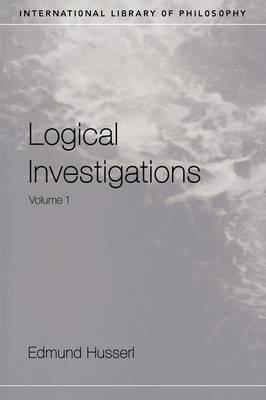
Edmund Husserl, Logical Investigations.
A massive two-volume work that appeared in 1900-1901, before the analytic/continental split had fully developed, this is the book that inaugurated Husserl’s phenomenological project. Inspired by Frege’s critical review of Husserl’s first book, Philosophy of Arithmetic, the Logical Investigations contain a devastating critique of psychologism, the theory that logic is based on psychology. I have tried to show that Husserl’s arguments against psychology also refute many varieties of postmodern truth-denial.
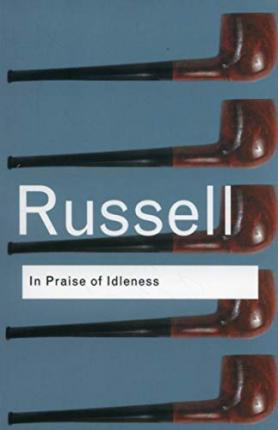
Bertrand Russell, In Praise of Idleness and Other Essays.
Russell was one of the first philosophers I read, as a teenager. The clarity of his writing, and his wit, helped to attract me to philosophy. The title essay in this 1935 collection is a classic. It argues that in an achievable world of greater equality, it would be possible for everyone to spend much less time on work than is now the case, with the resulting increase in leisure time leading to much greater involvement in the arts and sciences by people from all walks of life. Russell ranges over politics, economics, history, architecture, and science throughout the collection, displaying the usefulness of philosophy in contributing to the understanding of other fields.
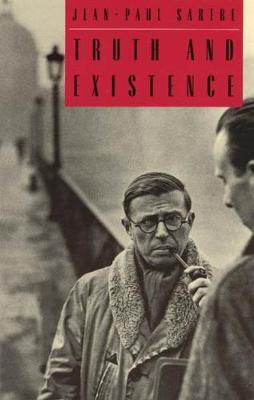
Jean-Paul Sartre, Truth and Existence.
This posthumously published text was written in 1948. It addresses the nature of truth, the ethics of belief, and the various strategies whereby people deliberately achieve ignorance of the truth so as to avoid their responsibility for dealing with it.
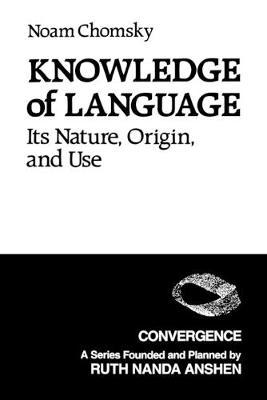
Noam Chomsky, Knowledge of Language.
Since Chomsky has been such a prolific scholar both in linguistics and in politics, people often seem interested in the question of a connection between these two aspects of his work. For the most part he has been content to keep them separate, but in this 1986 book he brings them together by means of a contrast between what he calls “Plato’s problem” and “Orwell’s problem.” Plato’s problem is that of figuring out how people can know as much as they do given “the poverty of the stimulus,” that is, the seemingly inadequate amount of relevant evidence to which they have access. Chomsky’s theories of language acquisition address this. Orwell’s problem is the exact opposite of this—how is it that people know so little, given the mountains of evidence available to them? Chomsky’s analysis of political propaganda and the functioning of the mass media are concerned with this.
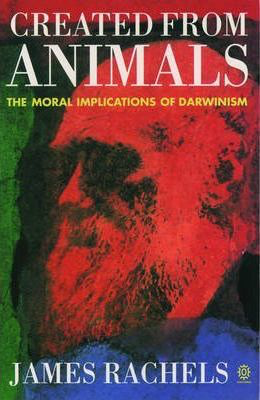
James Rachels, Created from Animals. The phrase “created from animals” comes from Darwin, and this beautifully written 1990 book takes up the moral implications of the Darwinian revolution in biology. Rachels powerfully makes the case that many modern thinkers, despite regarding themselves as secularist and scientific in their thinking, behave in their dealings with animals as if they regarded the book of Genesis in the Bible as literally true.
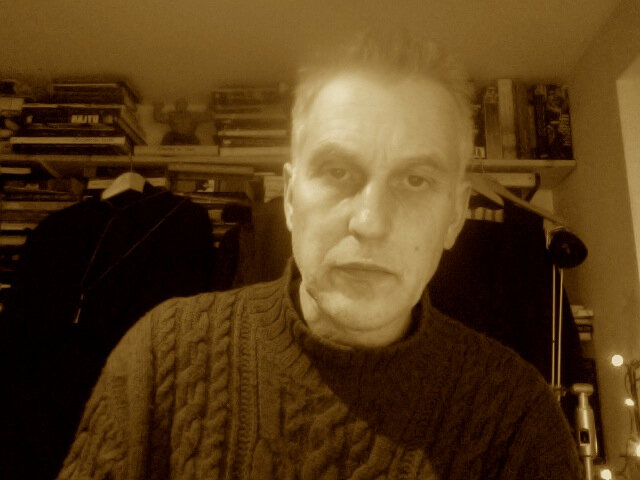
ABOUT THE INTERVIEWER
Richard Marshall is biding his time.
Buy his second book here or his first book here to keep him biding!
End Times Series: the index of interviewees
End Time series: the themes
Huw Price's Flickering Shadows series.
NEW: Steven DeLay's Finding meaning series
NEW Josef Mitterer's The Beyond of Philosophy serialised
